Today in Saint Peter’s Square in Rome, Cardinal John Henry Newman was created a saint by Pope Francis. It is a momentous occasion for Christians of all traditions on these islands as Newman, was, during his life, an evangelical Calvinist, an Anglican and a Catholic. He was ordained a Catholic priest in 1847 and created a cardinal in 1879 by Pope Leo XIII for services to English Catholicism. He also spent four years in Dublin where he helped to establish the Catholic University, a forerunner of University College Dublin. His canonisation was attended not only by Catholic bishops and priests as representatives of the Church in England and Ireland but also by Prince Charles, representatives of the British Government, the Irish Government, the Anglican Church, Oxford University and UCD. The intercession and memory of Saint John Henry Newman will, hopefully, be invoked in the future to bring about closer cooperation between the major religious communities on this island.
Newman was a prolific writer of books and essays during his lifetime. One of his most famous publications was his volume of lectures ‘The Idea of a University’. In this he puts forward his philosophy of education. He expressed the need for a Catholic University in a sector that had, even in his time, become largely secular. For Newman such a university must support research and be able to publish that research free from church censorship or else it would have no legitimacy in the modern world. What made it Catholic, however, would be the respect that it had for the teachings of the Church. In Discourse IX Newman says that a University is not a convent or a seminary but a place of “direct preparation for this world”. It is a place where young men and women are plunged into the world, in other words thrown into the deep end. Newman believed that those in University must learn to swim in troubled waters by jumping into them. University life removes the supports of childhood and the teenage years and exposes the student to the difficult and exciting prospect of standing on one’s own feet and, perhaps for the first time, making choices that will affect the rest of their lives.
Earlier this year Pope Francis published his encyclical Christus Vivit (Christ is Alive) which emerged from the Synod of Bishops, on young people, faith and vocational discernment that was held in 2018. In this encyclical Pope Francis has many interesting things to say about being a young Christian in today’s world and I want to touch this evening on some of what he says. Like Saint John Henry Newman the Pope encourages young people to plunge into life, to overcome anxiety and keep following their hopes and dreams. Our dreams are not instantly attainable but are the work of time, patience and commitment. Yet despite this he warns against being afraid to take risks or to make mistakes because you can always start again “for no one has the right to rob you of hope” (Par. 142). He advises the young not to “observe life from a balcony. Don’t confuse happiness with an armchair, or live your life behind a screen … Don’t be parked cars, but dream freely and make good decisions … Cast out the fears that paralyze you, so that you don’t become young mummies. Live! Give yourselves over to the best of life! Open the door of the cage, go out and fly! Please, don’t take early retirement” (Par. 143).
These are not the words we expect to hear from an 82 year old Pope but he does recognise that the energy, enthusiasm and idealism of youth is a good thing as it can be the catalyst to bring about positive change. In particular he singles out those who commit themselves to volunteer work that shows solidarity with others. Those who mentor the young must accompany them and encourage them particularly in their direct contact with the poor and the less fortunate in our world. Such social engagement can lead to a deepening of one’s own faith and the discernment of one’s vocation in life. The pope acknowledges that this is happening in so many ways in school and university groups through visitation to the elderly and the sick, and in charity work such as the establishment of soup kitchens for the homeless. Through such activity we can receive more than we give and grow in wisdom and maturity when we make the time to touch and understand the suffering of others. Pope Francis reminds us that the “poor have a hidden wisdom and, with a few simple words, they can help us discover unexpected values. (Par 171).
Pope Francis also recognises that young people have a desire to build a better world and he acknowledged that they had taken to the streets in many places to protest. We see that very recently in the Greta Thunberg led protests designed to challenge us about climate change. In the gospel story of the loaves and fishes a young man cooperates with Jesus to bring about a miracle, the forerunner of the Eucharist, in which bread and wine are transformed to bring us to eternal salvation. The challenges that young people face today can be confronted positively with faith in the Risen Lord present in the Eucharist. Jesus is with us every step of the way in our struggles create a just society. Pope Francis encourages you to “fight for the common good, serve the poor, be protagonists of the revolution of charity and service, capable of resisting the pathologies of consumerism and superficial individualism”(Par. 174)
Consumerism and excessive individualism are the subtle enemies of a free and just society. We are encouraged today to look after only ourselves or a few close loved ones and ignore those outside that circle. Fear of others is actually encouraged in society so that we will be more compliant consumers wishing to insulate ourselves from the big bad world. Various secular and non-Christian ideologies want you to forget the past, to spurn the experiences of your elders and reject the “spiritual and human riches inherited from past generations” (Par 181). If you do you will be open to their influences and will be uprooted from the foundations which give you stability and values in life. These ideologies will also use the ‘cult of youth’ to manipulate you and make you feel worthless if you don’t fit in to the idealised image of youth they promote. Whatever is not young, slim and beautiful is side-lined and in that way the young are exploited for political and financial profit. Remember beauty and eternal youth is found in those who have aged gracefully, those who suffer illness or disability, those who sacrifice themselves for others, those who are committed to a husband or wife through thick and thin or those who work long and hard to feed their families.
Part of this strategy of promoting a selfish and consumerist world is the attempt to promote spirituality without God. How many people do you hear say today “I’m spiritual but not religious”. What does that mean? Pope Francis is clear that it is an attempt to separate you from “community or concern for those who suffer” and it “claims to offer a future paradise that nonetheless seems increasingly distant” (Par 184). The Christian way, which the pope proposes, offers us freedom, enthusiasm and new horizons.
The effects of these secular ideologies which are constantly presented to us through the media, through advertising, through popular culture such as music and its accompanying videos, has had the effect of making ‘choice’ a god in today’s world. It is proclaimed with abandon that everyone has the right to choose even if those choices bring destruction on themselves or others. For instance, this worship of individual choice, separated from any obligation to the common good, has led to a widespread acceptance of the right to choose to end human life in the womb. It has become increasingly difficult for people, young Christians in particular, to speak out for what they know to be true – that every human life has a value and ought not, at any stage, to be destroyed or disposed of at will. Abortion has been described as either healthcare or a human right but to do so is to twist language and to misrepresent the true meaning of those terms in the most remarkable way. I have great faith in the youth of today that with the education they receive, and their innate sense of justice and right, they will see through the lies promoted by the abortion industry and see the ending of innocent life in this way as one of the great injustices of our time. Our opposition, however, to abortion must always be expressed in the language of love, love for the woman who feels forced to make her choice and love for the born child as well as the unborn.
Pope Francis acknowledges that the challenges young people face today are many and perhaps greater than ever before. Your time here in Queen’s University will expose you to those challenges in a new way and all of you will be truly educated when you have responded to those challenges in a way that doesn’t rob you of your integrity, your faith and the values you possess. In Christus Vivit, Pope Francis encourages you to “care for your roots, because from the roots comes the strength that is going to make you grow, flourish and bear fruit”. (Par 186). Your experience of university life should not uproot you from who you are, or where you are from, but help to find how best to express that in your life with respect for others and with respect for yourself.
And finally, be grateful for the opportunity you are receiving in this place of learning. As we heard in the gospel this evening gratitude can be in short supply – only one out of ten healed lepers returned to Jesus to give thanks – but true gratitude keeps us humble and shows us that we rely on others and that what we achieve in life is not achieved on our own. We are simply standing on the shoulders of giants – the community we share this space with and the many generations who have gone before. May you look out and up from yourself and find our creative and living God in all that you do.
ENDS



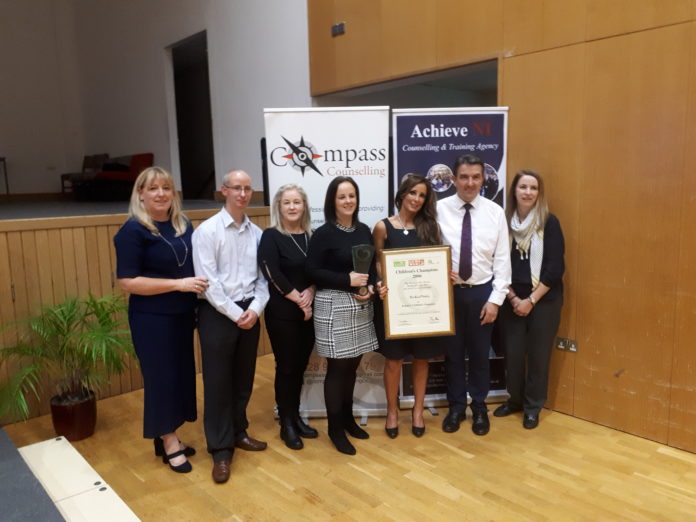
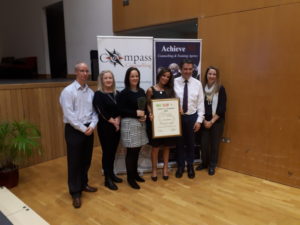
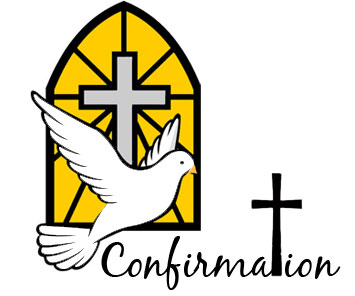
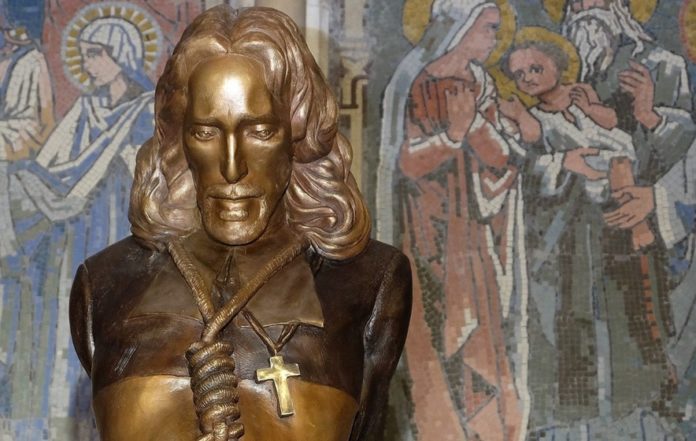
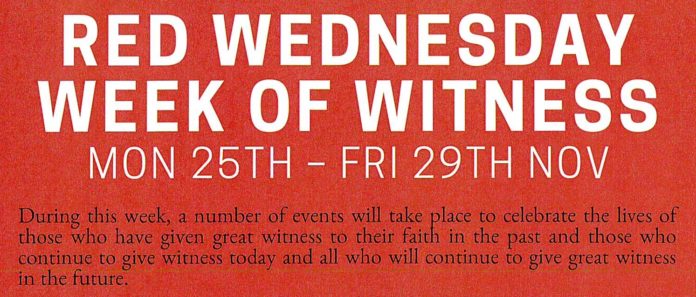
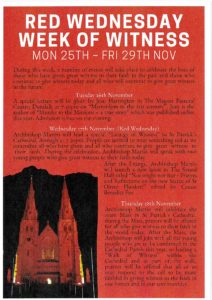
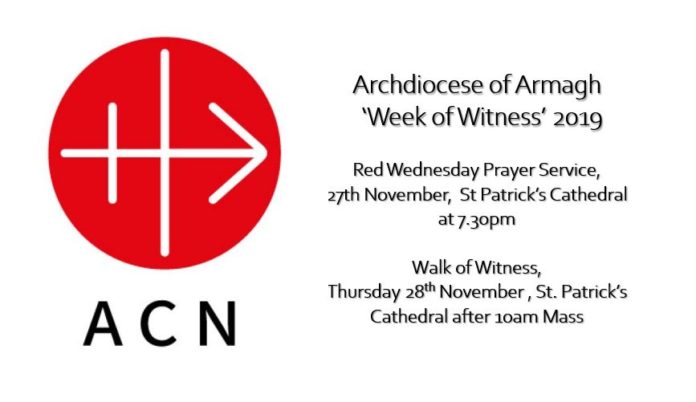
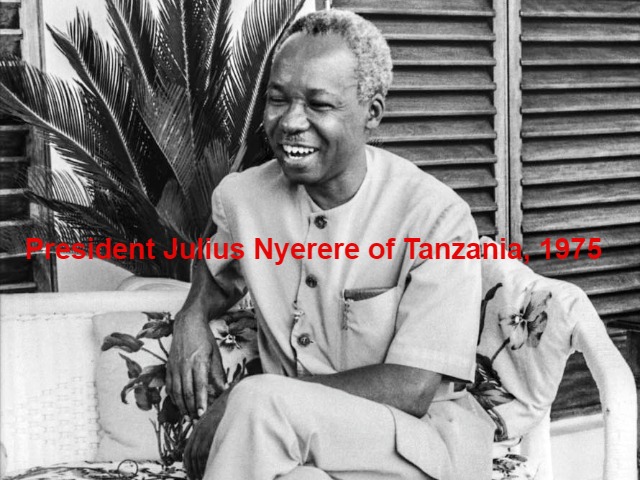
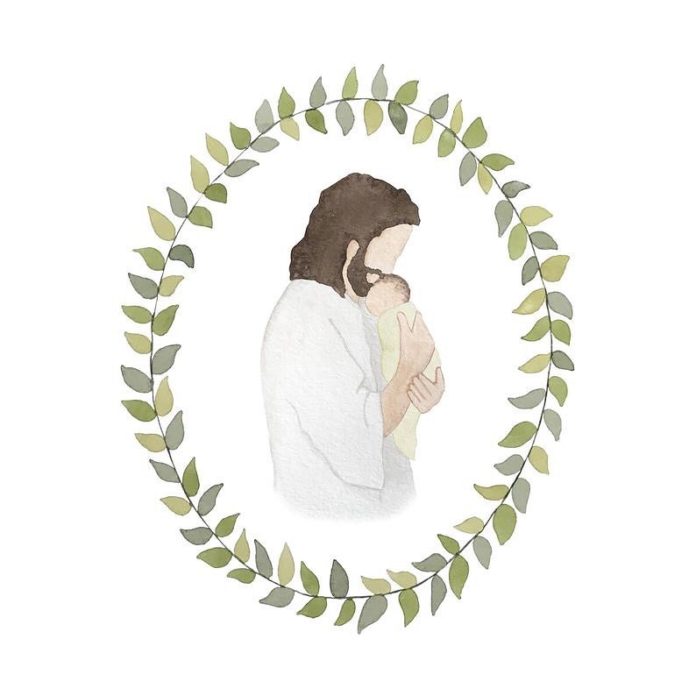
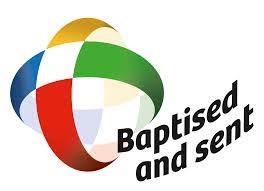
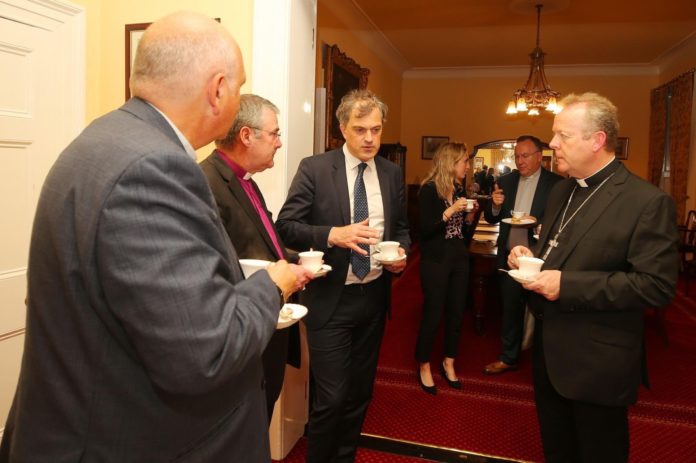
You must be logged in to post a comment.